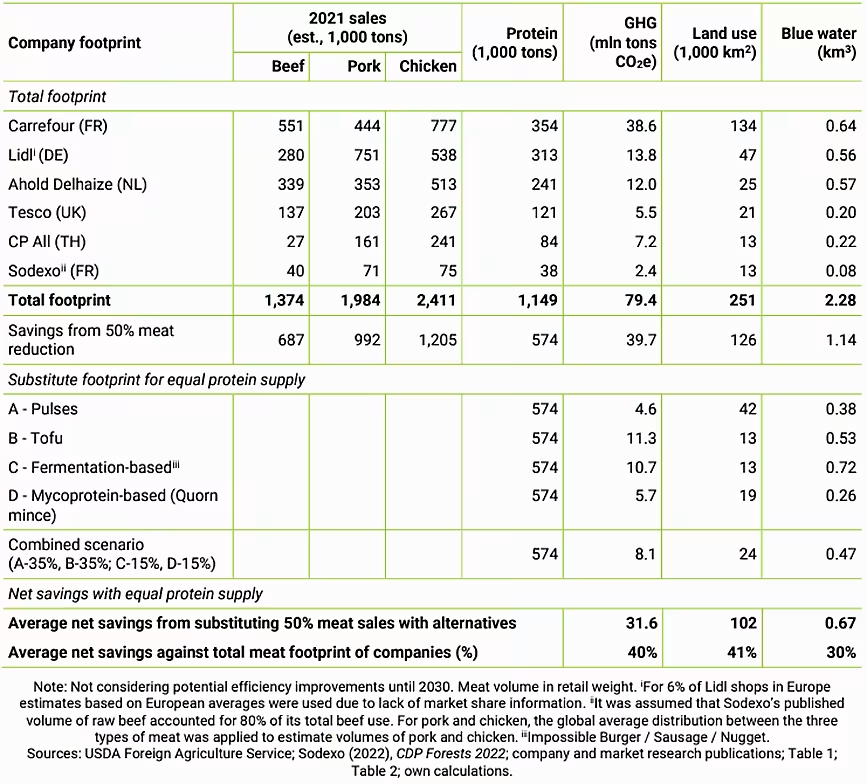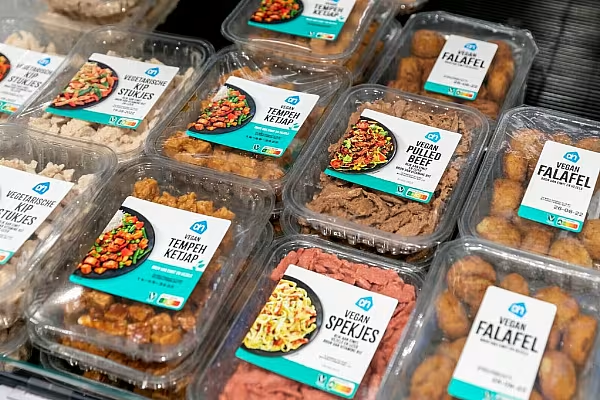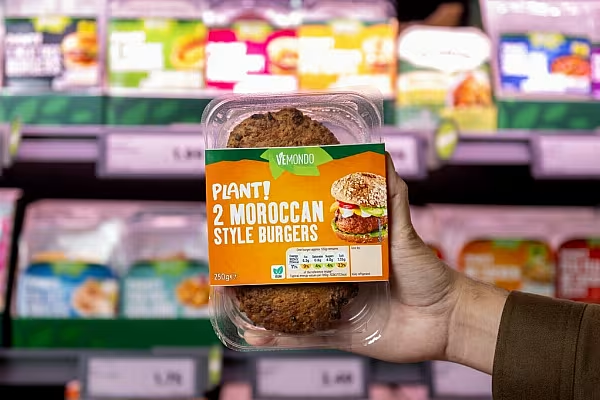A 50% shift from meat to plant-based proteins by six major operators, Carrefour, Lidl, Ahold Delhaize, Tesco, Thailand's CP All and foodservice giant Sodexo, would reduce greenhouse gas emissions by 31.6 million tonnes per year, a new study has found.
The study, carried out by research consultancy Profundo and commissioned by environmental group Madre Brava, found that a commitment by these businesses to achieve 50% plant-based protein sales by 2030 would lead to a greenhouse gas emissions reduction equivalent of removing more than 25 million cars from EU roads.
It would also free up an area of land the size of Hungary, the report states, and save 670 million cubic meters of water, equivalent to 268,000 Olympic-size swimming pools, each year.
Madre Brava announced the study in advance of COP28, which is taking place in Dubai this week, in regard to which it is urging retailers to commit to accelerating their adoption of plant-based proteins.
'We Need More Ambition'
“Just six food retailers can have an outsized impact on the climate, nature, water and their own bottom line by shifting to 50% plant proteins by 2030,” said Nico Muzi, managing director of Madre Brava.
"While some of these supermarkets have already set modest targets to increase the share of plant proteins in their overall protein sales, we need more ambition and more leaders to tackle the climate emergency. Thus, we urge leading food retailers Ahold Delhaize, Carrefour, CP All, Lidl, Sodexo and Tesco to commit at COP 28 to achieve a protein portfolio with at least 50% plant proteins by 2030.”

Increased Plant-Based Proteins
Several European food retailers are now establishing goals to increase the proportion of plant-based proteins while simultaneously reducing the share of animal-based products in their overall protein offerings.
In March 2022, Albert Heijn announced its commitment to achieving a 60% plant-based protein share of all protein sales by 2030, setting the tone for the industry. Following suit, Lidl Netherlands pledged to reach a 50% plant-based protein share by 2030.
In a similar vein, in October 2023, Lidl Germany made a significant commitment to nearly double the share of plant-based protein in its meat, egg, fish, and dairy product categories to 20% by 2030. Lidl Germany also aims to reduce the prices of plant-based meat and milk alternatives to match the cost of conventional animal-based products.
A recent European consumer poll by the University of Copenhagen, Ghent University and ProVeg published this month showed that more than half of Europeans reported to be eating less meat – up from 46% in 2021.
Health is the main factor influencing the decision to reduce the meat intake (47%), as increased numbers of consumers choose a flexitarian diet, the study found.














